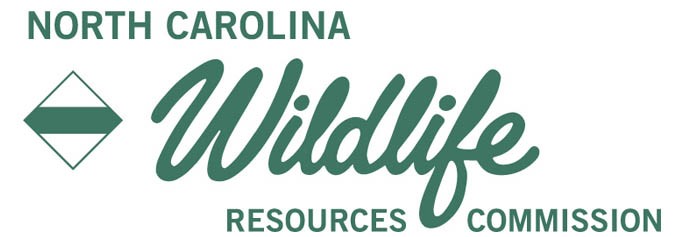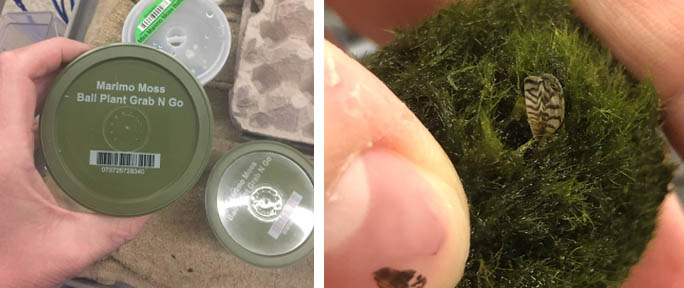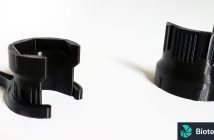
We thought is was important to share this important announcement from the North Carolina Wildlife Resource Commission. We are also seeing identical reports from other states across the country so don’t think this is just isolated to North Carolina. Keep reading to learn more and why it is important for freshwater aquarists to look fore these and properly dispose of this invasive species.

Below are the findings from the NC Wildlife Commission.
The Wildlife Commission received notice that it appears the moss balls were imported from Ukraine to a distributor in California that recently shipped contaminated product to pet stores nationwide. The facility that imports the moss balls has been quarantined and all shipments of moss balls have been stopped, according to a news release from Montana Fish, Wildlife & Parks.
The N.C. Wildlife Resources Commission, along with wildlife agencies across the country, is urging pet and aquarium stores as well as aquarium owners to remove and safely dispose of any moss ball plant designed for aquariums, after invasive zebra mussels were discovered inside the products labeled as “Marimo Moss Ball Plant Grab & Go” and “Mini Mariom Moss Balls” (see packaging: Pic 1; Pic 2; Pic 3).
In addition to being illegal to possess in North Carolina, zebra mussels clog pipelines used for water filtration, render beaches unusable, and damage boats. They also negatively impact aquatic ecosystems by harming native organisms.
Zebra mussels have been confirmed in moss balls sold at retailers in North Carolina, including PetSmart. If you have purchased moss balls within the past month, please follow the instructions below about how to properly destroy them and clean your aquariums. Known packaging reads ‘Marimo Moss Ball Plant Grab & Go’ and ‘Mini Marimo Moss Balls’, but there are likely more brands that contain the mussels. An overabundance of caution is suggested if you’ve purchases ANY moss balls recently.
Any aquarium owner who has purchased moss balls should dispose of it immediately and carefully by:
- Placing them in a plastic bag and freezing them overnight; or,
- Boiling them or soaking them overnight in a bleach solution (one cup bleach per gallon of water).
After freezing or boiling, moss balls should be bagged and disposed of in the trash. Living moss balls or untreated water should not be disposed of in any location where they can reach sewage systems or streams or lakes.
To treat your aquarium:
- Remove fish and apply the bleach solution and let it sit for at least one hour before disposing the water down the sink or toilet.
- Disinfect filters, gravels and structure as described above and dispose of water down the sink or toilet.
Learn more by reading the Wildlife Commission’s Frequently Asked Questions about Zebra Mussels flier.





